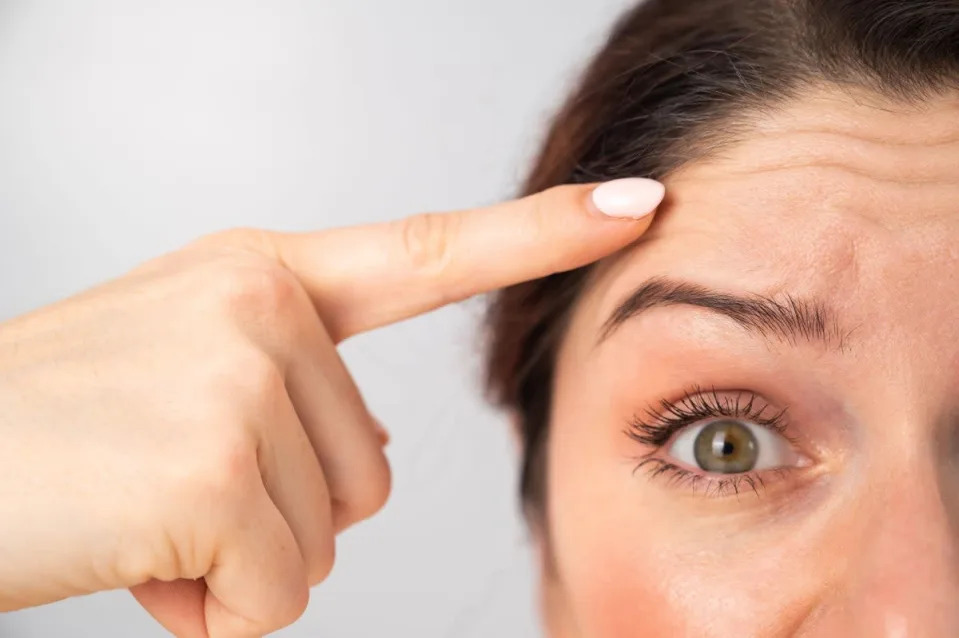Unless you achieve the same feat as celebrities like Madonna – who turned 64 last month and has the smooth skin of someone less than half her age – sooner or later your complexion will start to show signs of wear.
As much as you religiously apply sunscreen during the day and retinol at night, fine lines and wrinkles will eventually appear.
You may be spending more time in front of the mirror wondering what happened to that fresh-faced young person, or paying more attention to ads for beauty products that promise to turn back the clock.
Although most anti-aging advertising is directed at women, men are not immune from the desire to stay young, with 33-year-old pop star Joe Jonas recently admitting that he uses the injectable cosmetic product Xeomin to reduce frown lines, and partnered with the brand in a promotional campaign.
As cosmetic procedures become more normalized thanks to celebrities and social media influencers , you may feel more pressure to have age-defying “perfect” skin, but it doesn’t have to be.
Why does skin change as we age?
“One change we all experience is reduced levels of collagen and elastin – important components of the skin – leading to loss of skin support and structure,” explains psychodermatologist Dr. Alia Ahmed, who works with The Body Shop for the launch of its new Edelweiss range. “Skin becomes more prone to losing moisture easily and finds it difficult to stay hydrated.”
The effect of sun damage early in life also begins to show as we age, he continues: “This usually shows up as changes in pigmentation, but is also linked to the development of fine lines and wrinkles due to to DNA damage in the skin caused by the sun.
Another big culprit? Hormones, says Jennifer Kavanagh, senior therapist at Essentials Beauty and Skincare clinic (essentials.ie) in Dublin, especially for women.
“With menopause, the signs of aging are rapid and exaggerated because the skin can’t regenerate quickly,” explains Kavanagh. “When the hormone estrogen is depleted, it wreaks havoc on the production of collagen, hyaluronic acid, and ceramide, which, in turn, drastically decreases the healing power of the skin.”
Is it normal to worry about skin aging?

There is a kind of double standard in the fact that, on the one hand, advertising suggests that “anti-aging” is the holy grail ofskin care, while society tells us that caring “too much” about our appearance makes us vain.
“It’s completely normal and very common to worry about skin aging,” says Ahmed. “There’s no shame in wanting to feel good in your skin and, more importantly, protect it as you age.”
Use the analogy of driving a car for years; Like paint, skin won’t stay flawless forever: “Skin is a sign of your life’s journey, so while ‘wear and tear’ is normal, there’s no shame in wanting to keep it up.”
Kavanagh agrees: “It’s definitely not a sign of vanity and it’s normal to worry or have some concern about our skin aging.”
He compares skin care to daily tooth brushing: “The skin is our body’s largest organ and protects it throughout the day, so yes, it deserves the best care it can get. If you treat it along with brushing your teeth, you can develop good habits for healthy, glowing skin for life at any age.”
Self-care can boost self-esteem
Once you accept that skin aging — and worry about it — is normal, one of the keys to feeling good about your skin is to avoid the “compare and despair” mentality, whether in real life or online .
“When I discuss skin aging with my clients, their negative feelings are often related to comments or comparisons,” says Ahmed. “It is important to remember that skin is unique to each individual and cannot (and will not) be the same as someone else’s.”
Also, remember that with the rise of cosmetic procedures, photoshop retouching, and Instagram filters, you’re often not even comparing yourself to reality, even when celebrities claim they haven’t gotten any “work” done.
Ahmed comments, “I also like to spend some time highlighting what is realistic to expect from your skin, and what is likely to be the product of an unrealistic comparison.”
Although it is sensible to recognize that aging is inevitable, there is nothing wrong with using skin care as a form of self-care and to help ease worries.
Ahmed continues: “Actively practicing self-care is something I advocate. Learning about your own skin, understanding its texture, its tone and its needs is very important”.
No matter what stage of life you are in, you can always take steps to protect your skin, she adds: “I always talk about prevention, for example, effective use of sunscreen and protective clothing, antioxidants, quitting smoking and maintain a balanced lifestyle.

